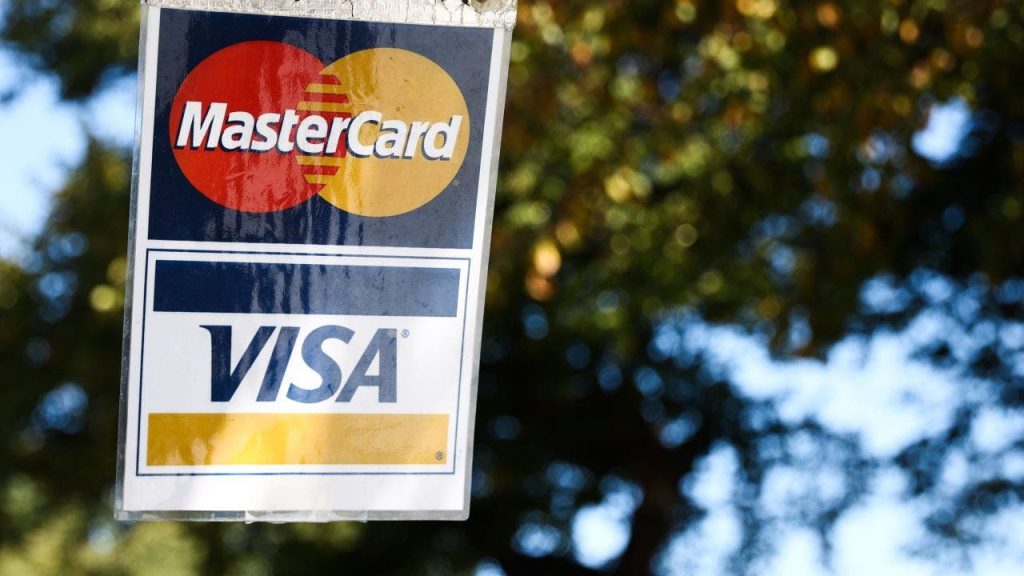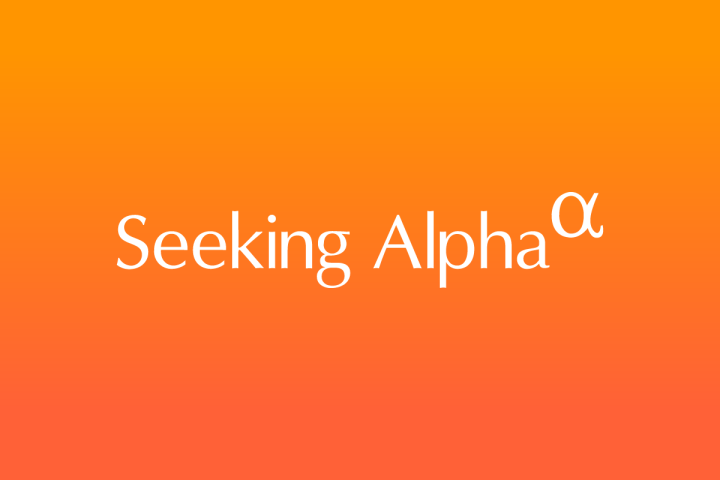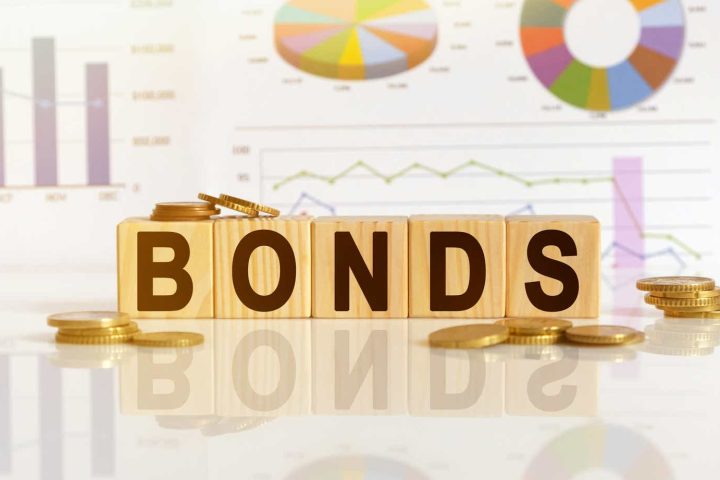Coming into the year, bond traders were pricing in close to six quarter-point rate cuts for 2024. That number swelled to near 170 basis points early in the first quarter, benefiting long-duration assets and small-cap growth equities. The thinking was that a slowing economy would eventually roll over into a recession, prompting the US Federal Reserve and other central banks to slash policy rates. But firm economic data prevailed, and one by one, rate cuts were taken off this year’s board. Not surprisingly, those same rate-sensitive stocks that had led off the market’s low in October 2023 lost steam. That includes many of the Cathie Wood “ARK” type names.
I am downgrading the ARK Fintech Innovation ETF (NYSEARCA:ARKF) from a buy to a hold. Shares are up modestly this year (total return), sharply underperforming the S&P 500’s 15% performance, and I see its high-growth portfolio as somewhat risky in today’s ‘higher for longer’ environment while technicals have turned less sanguine.
Fewer Rate Cuts Priced Into 2024, A Headwind For Speculative Growth Stocks
BofA Global Research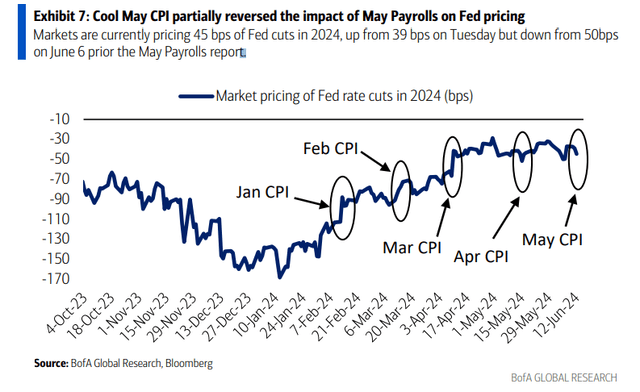
According to the issuer, ARKF is an actively managed ETF that seeks long-term growth of capital. It seeks to achieve this investment objective by investing under normal circumstances primarily (at least 80% of its assets) in domestic and foreign equity securities of companies that are engaged in the Fund’s investment theme of financial technology (“Fintech”) innovation.
ARKF has lost assets in the past six months. Total assets under management are now just $893 million, down from $1.2 billion when I first analyzed the ETF. Share-price momentum has likewise slowed, now sporting just a B- ETF Grade by Seeking Alpha, compared with an A+ rating a quarter ago and at the end of 2023. The fund’s high 0.75% annual expense ratio is a considerable cost, and the fund has not paid a dividend in the past 12 months.
ARKF is considered a risky ETF given both its concentrated allocation and high volatility metrics in the past many months. Liquidity is healthy, however, given average daily volume of close to 400,000 shares and a median 30-day bid/ask spread of four basis points as of June 27, 2024, according to ARK Invest.
Looking closer at the portfolio, the 1-star, Negative-rated ETF by Morningstar is focused on the growth side of the style box with mixed exposure across the size spectrum. So, the fund is dependent on low interest rates since the growth shares that it owns are not as profitable as some of the free-cash-flow stalwarts in the mega-cap space. While ARKF’s price-to-earnings ratio has fallen about 5 turns, it remains an expensive fund with a solid growth rating.
ARKF: Portfolio & Factor Profiles
Morningstar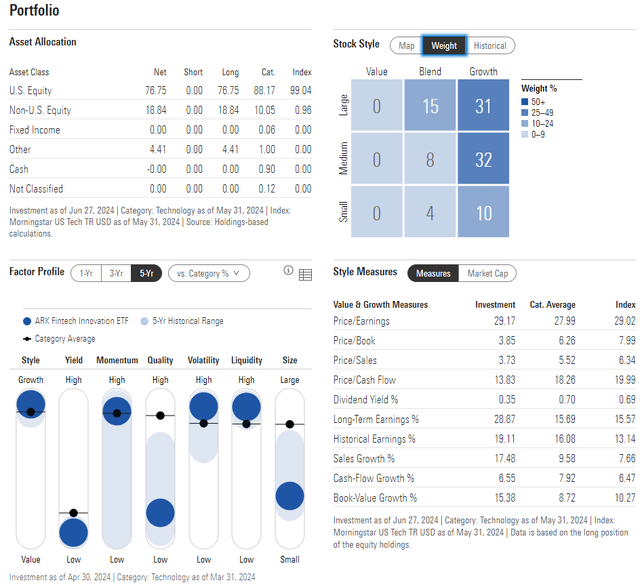
ARKF is also quite focused on just a handful of sectors. Information Technology is the largest weight at nearly 42% while Financials at 26% is another significant overweight. But many of the companies in the portfolio fit the same “fintech” mold – a niche that continues to struggle amid tight monetary policy conditions.
Still, with bitcoin above $60,000, the fund’s crypto-related holdings are positioned well. Of course, a key risk is that investors can own bitcoin outright in a brokerage account through spot bitcoin ETFs, which is different from when I wrote about the fund last December.
ARKF: A Concentrated Allocation
Seeking Alpha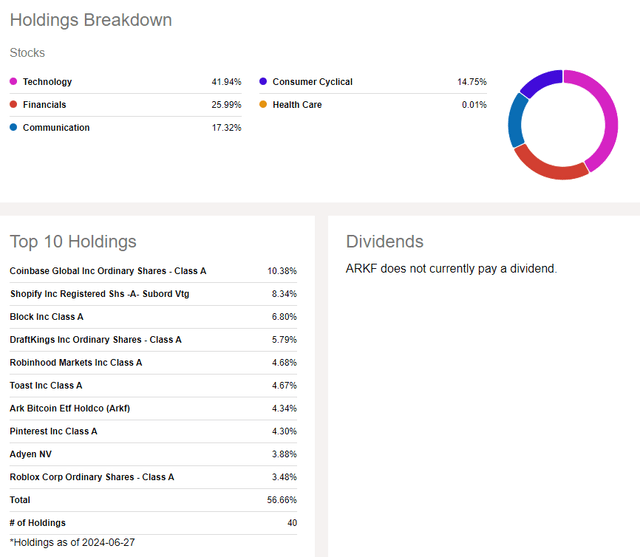
Seasonally, July has been ARKF’s best month historically. While the sample size is small, just five years, we have seen strong rallies to jumpstart the second half. Volatility has tended to strike over the back half of the third quarter, though.
ARKF: Bullish July Seasonal History
Seeking Alpha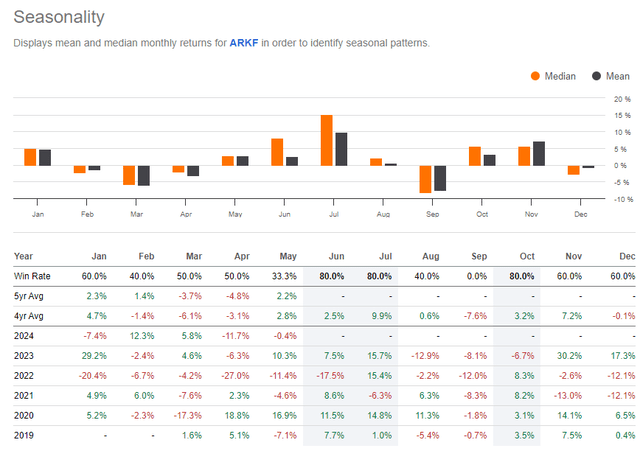
The Technical Take
I was hopeful that ARKF would continue its strong uptrend that began in October last year as the calendar flipped to 2024. There was a stumble out of the gate, but shares did manage to reach multi-quarter highs by March. After notching a peak just below $31, shares are merely consolidating. This isn’t an outright bearish move considering that ARKF’s long-term 200-day moving average remains upward sloping and the ETF continues to print a series of higher lows.
So, I don’t feel all that downbeat about momentum despite the fund’s significant relative underperformance to the S&P 500. But take a look at the RSI momentum oscillator at the top of the graph – it remains in a lukewarm range between 30 and 55. Important support comes into play around $26 – the May low and where the 200dma will soon come into play. $31 remains resistance.
Overall, with poor relative strength and decent absolute technical trends, ARKF’s chart is mixed.
ARKF: Shares Consolidation, Key Support Near $26, Rising 200dma
StockCharts.com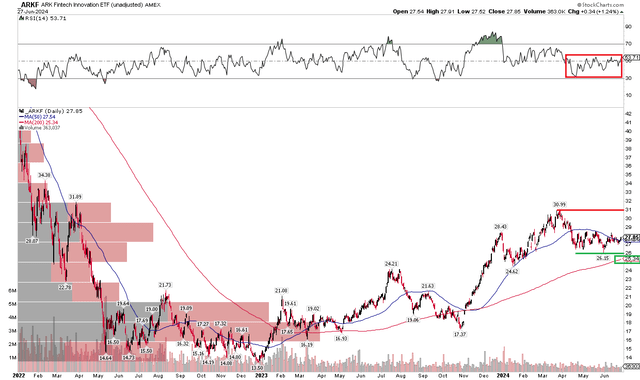
The Bottom Line
I have a hold rating on ARKF. The fintech fund was unable to sustain its firm momentum off the low from October. Fundamentally, the portfolio may continue to be restrained as interest rates remain high versus the average of the past five-plus years.
Read the full article here


